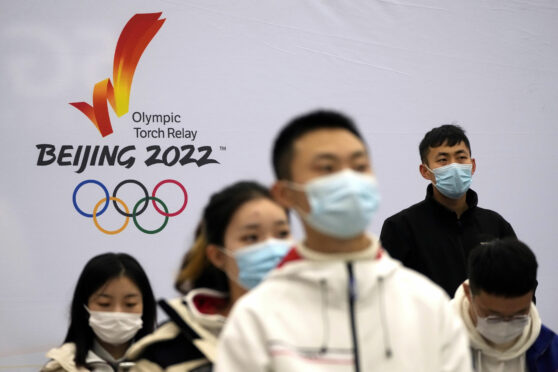
Professor Grant Jarvie is director of the Academy of Sport at University of Edinburgh
Once again, the phenomenal international reach and scale of sport to carry a political message has hit the headlines as the United States fires the starting gun to boycott the Winter Olympic Games.
Scheduled to take place in Beijing, it will be the first time that the Summer and Winter Olympics will have been hosted in the same city. No country, as yet, has stated that it will not send athletes but the US, Canada, Australia, New Zealand, Lithuanian, UK and Scottish governments have all announced diplomatic boycotts.
Except for Lithuania, which is embroiled in an argument with China over its stance on Taiwan, the diplomatic boycotts all cite the issue of human rights and in particular the treatment of the Uighur Muslim community in Xinjiang. The countries exercising a diplomatic boycott are reinforcing foreign policy stances on human rights and sport is the messenger.
The European message is one of confusion. France, no doubt mindful of the fact that the Summer Olympics are to be held in Paris in 2024, indicated they were minded not to boycott but would prefer a European-wide stance, something that is highly unlikely. Germany and the Netherlands followed, calling for European unity. Sweden announced it had not been invited while Greece, Hungary and Malta are unlikely to boycott due to the growing influence of China. Outside of the EU, Norway the most successful Winter Olympics nation will not boycott.
Sport is an invaluable tool for countries to deliver both sporting and non-sporting outcomes. Rather than complain about the role of politics in sport the different worlds of sport should simply live and work with the opportunities it opens up. The modern sports administrator, CEO or chair of a governing body needs to operate in the world of sport and in the world of politics. The modern diplomat or foreign ambassador equally needs to fully grasp the capability of sport to deliver not just foreign policy but better cultural relations. Sport delivers on all fronts but rarely gets the credit and funding for doing so.
So, this is not a question of keep politics out of sport, you can’t stop the politicisation of sport and why would you want to? What the different national stances on the diplomatic boycott of the Winter Olympics does is amplify that sport is a great pillar of connectivity and language on a scale that few other areas of public life offer.
The same sports tool has helped to shed a light on: the whereabouts of the Chinese tennis player Peng Shuai; the need for adequate funding for school meals through the work of the footballer Marcus Rashford; the alleged racism in Scottish cricket through the sportscotland investigation; the athlete Cathy Freeman as a symbol of reconciliation between aboriginal and white Australia and a country which had much to forgive; the value of sport in sustaining relationships in Scottish communities during the ongoing pandemic.
When visiting Scotland in 2017, the then Chinese ambassador talked of the spirit and humanity of Eric Liddell, interned in a concentration camp in Weifang in the 1940s where he continued to support children. The athlete’s name and story has lived on, providing a bridge for potential cultural relations building, a sustainable space for countries to talk to one another. As the ambassador observed: “We are living in a time of mutual learning for common progress”. In 2024, it will be 100 years since the Chinese-born Scottish athlete Liddell won Olympic gold at the 1924 Paris Olympics. Yet another opportunity for sport to deliver a message and play its part in helping to forge a common good for a better world.
Sport is a great toolbox that delivers so on many fronts both sporting and non-sporting and it deserves much more credit for doing so. Modern sports leaders need to work in the political space just as politicians and diplomats need to respect and recognise what sport does on and off-field.

Enjoy the convenience of having The Sunday Post delivered as a digital ePaper straight to your smartphone, tablet or computer.
Subscribe for only £5.49 a month and enjoy all the benefits of the printed paper as a digital replica.
Subscribe © SYSTEM
© SYSTEM